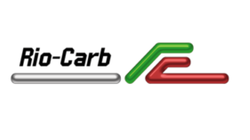Quality manufacturing methodology is key to extended CrC liner lifespan
| Quality manufacturing methodology is key to extended CrC liner lifespan | 15 KB | Download | |
| CrC can affect the quality, consistency, integrity and wear properties of long life liner plates | 923.18 KB | Download | |
| It is of the utmost importance that industrial operations make use of quality certified CrC products | 1.17 MB | Download | |
| long life wear plates can significantly improve operational efficiency and reduce maintenance costs | 7.89 MB | Download | |
| manufacturing of CrC Liner Plates have vastly improved since the product was first introduced to the market 35 years ago | 528.03 KB | Download |
The manufacturing methodology of CrC can affect the quality, consistency, integrity and wear properties of long life liner plates, and it is therefore of the utmost importance that industrial operations make use of quality certified CrC products for the material handling process.
The manufacturing of CrC Liner Plates have vastly improved since the product was first introduced to the market 35 years ago, with top liner plate expert Rio-Carb playing a leading role in advancing technology and developing innovative variations in manufacturing methods.
What’s more, Rio-Carb is the only CrC liner plate and equipment manufacturer whose welding standards are compliant with the internationally-recognised American Welding Society (AWS).
Company managing director Martin Maine reveals that local South African welding standards do not make provision for CrC welding, which requires specialised techniques. “The welding of CrC faces risks if not carried out in accordance to certain specifications,” he warns.
Maine indicates that the biggest challenge with CrC is to get the weld beads smooth, as rough welds immediately create more cavities and disturbances to the material flow. “Customers need to be wary of companies that do not have certified welding processes as this may cause major future problems.”
According to Maine, there is a general lack of knowledge and understanding about the use and advantages of CrC in the local industry. As a result, Rio-Carb moved into a new production factory with state-of-the-art equipment and technology.
“This provides CrC designers and users with first-hand experience and detailed information for the application of this unique material. To remain ahead of the game, we are also currently in the process of improving our overall quality management standards by becoming ISO 9001-2008 certified,” adds Maine.
Maine highlights that Rio-Carb is currently expanding its geographical footprint by working closely with a maintenance engineering company that specialises in site installations. “This compliments our comprehensive sales team that comprises of representatives and agents throughout South Africa.”
The benefits of quality CrC
Independent laboratory testing has proven that CrC provides eight to ten times the wear resistance against abrasion when compared to industry-standard 400 and 500 Brinell steel. Furthermore they are susceptible to annealing if heated above 350 oC whereas CrC has hard chrome carbides in the steel base and they are not affected by heat up to 700°C.
“As the balance between cost effectiveness and reliability becomes increasingly important, industries will be looking for new and improved methods to effectively transport abrasive materials, and the demand for excellent quality and genuine CrC products will increase,” Maine concludes.
Ends
Notes to the Editor
There are numerous photographs specific to this press release. Please visit http://media.ngage.co.za and click the Rio-Carb link.
About Rio-Carb
Rio-Carb manufactures wear-resistant Chromium Carbide clad liner plates for heavy materials handling applications in the mining and allied resources industries. The company was initially motivated by Martin Maine, who had experience in the welding and manufacturing industries. He was importing the current product from Australia, and saw the opportunity to establish local manufacture in 1982, when Rio-Tinto had ambitions to establish manufacturing companies allied to mining, and therefore, financed and capitalised the new Rio-Carb for local manufacture. After being in the Rio-Tinto (SA) stable for 16 years, there was a management buy-out by the existing and current share-holders.
Rio-Carb Contact
Martin Maine
Managing Director
Phone: (011) 908 1014
Fax: (011) 908 4139
Email: info [at] riocarb [dot] co [dot] za
Media Contact
Jana Klut
NGAGE Public Relations
Phone: (011) 867-7763
Fax: 086 512 3352
Cell: 074 111 4900
Email: jana [at] ngage [dot] co [dot] za
Web: www.ngage.co.za
Browse the NGAGE Media Zone for more client press releases and photographs at http://media.ngage.co.za

